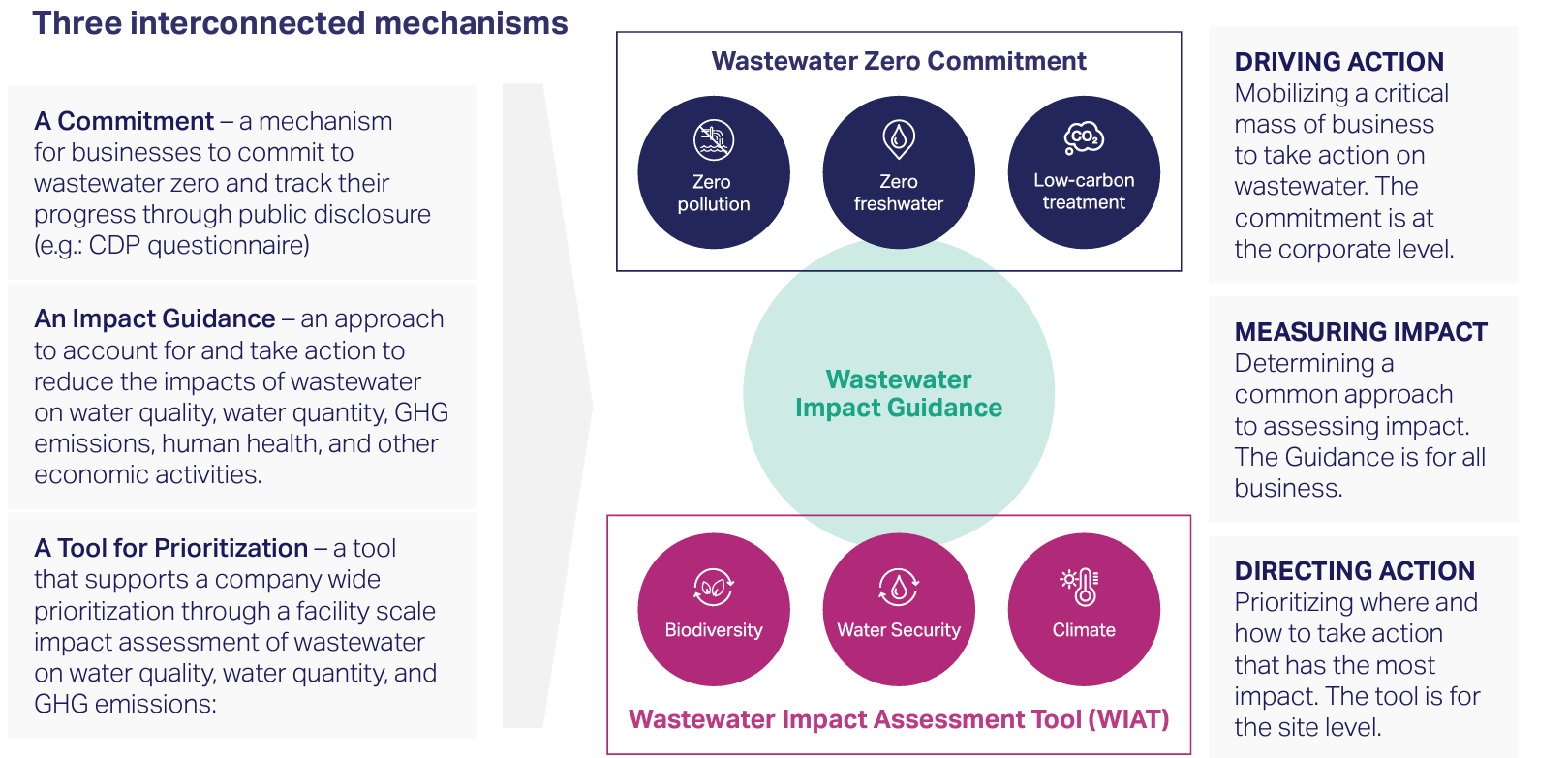

A framework for business action on wastewater
The Wastewater Zero initiative supports business action to raise the ambition on SDG6.3 along three pillars (zero pollution, zero freshwater impact, and low-carbon treatment) and through three interconnected mechanisms: commitments, measurement and valuation of impacts, and a tool to prioritize and direct action.

Learn more about each mechanism below
Circularity: Incorporate principles of circularity throughout your organization
Business can incorporate circularity in water use through implementation of wastewater management strategies such as prevention, reduction, recycling and reuse. Adoption of ‘fit-for-purpose’ wastewater recycling and reuse is an essential practice for incorporating circularity in water use.

Targets & Metrics – Establish targets and metrics based on science and context
Science-based targets (SBT) provide companies with a clearly defined pathway to future-proof growth by specifying how much and how quickly they need to reduce specific impacts and dependencies on the environment. At a site-level, water circularity metrics can measure the circularity of a facility’s water sourcing, use, and discharge as contributions to a net reduction in water demand within the watershed.

Partnerships – Invest in public-private partnerships
Some of the drivers for collaboration include enhanced access to technical knowledge, compliance, finance, and influence. Partnerships can range from sharing infrastructure to collaboration with industry peers to form a consortium for knowledge sharing. Partnerships can be formed using either a bilateral approach or a multilateral approach.

Value Chain – Incentivize and support value chain partners
Business should work across sectors and value chain partners to support capacity building efforts. This could include the development of standardized training material, certification programs and collaborating with consultants to deliver expertise training

Valuing Water – Value water to minimize externalities and incentivize reuse
Valuing water can influence industrial wastewater management in two main ways: establishing a business case for a reduction in releasing hazardous substances to freshwater sources and incentivizing an increase in wastewater recycling and reuse. The Natural Capital Protocol is a good starting point for understanding the value of water.

Disclosure – Improve disclosure beyond compliance
Business should understand the impact of freshwater pollution not just within their own operations and assets, but downstream and throughout their value chain. Such an approach may result in a risk profile that more fully captures freshwater water pollution impacts and ensures that water-related disclosure provides meaningful information for stakeholders.


Copyright © 2024
World Business Council for Sustainable Development
All rights reserved | Privacy Policy